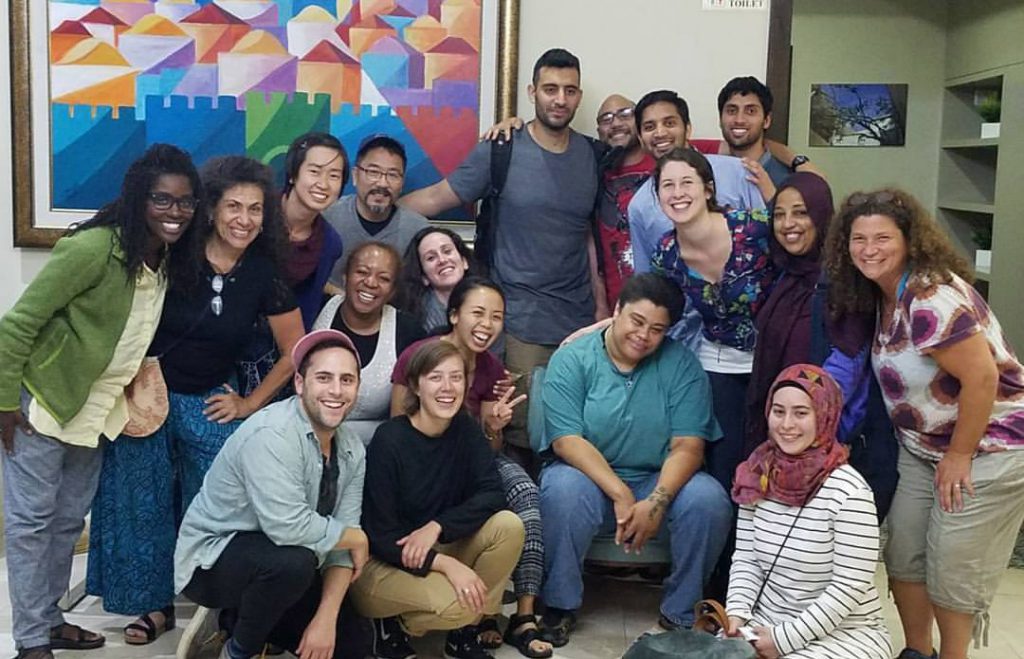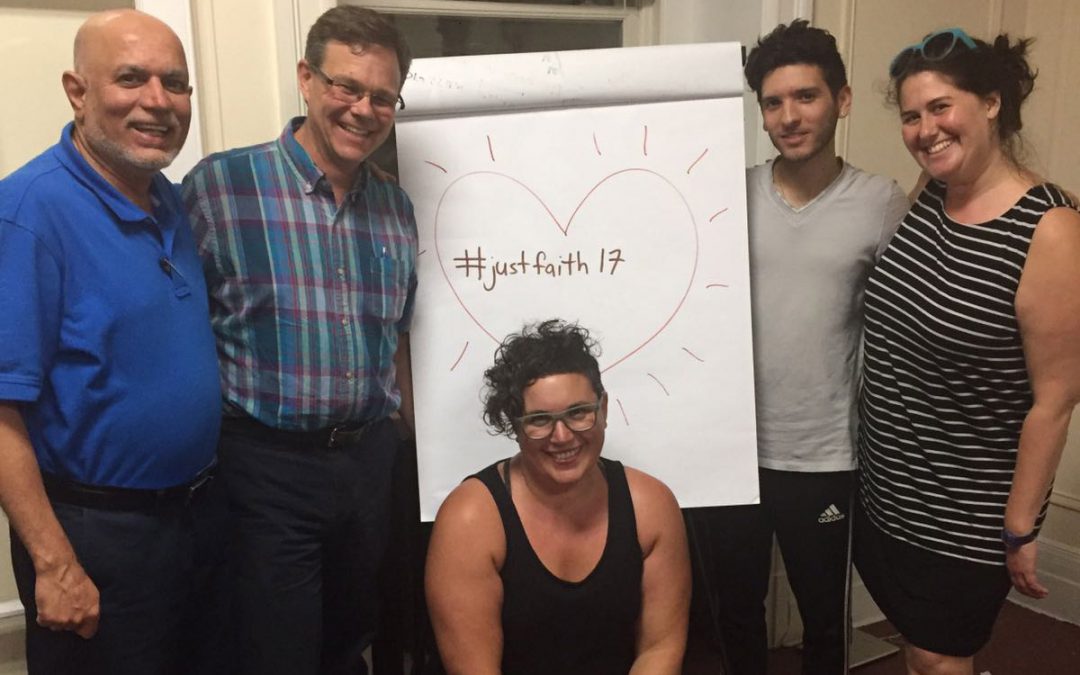WASHINGTON- When Rabbi Alissa Wise, the deputy director of Jewish Voice for Peace, heard that Israel had passed legislation in March banning non-citizens who support boycotts of and divestment from the country, she thought it was just political posturing. But on July 23, she and four other peace activist and interfaith leaders were barred from boarding their flight to Israel at Dulles International Airport in Washington, D.C.
“It felt like when you get punched in the gut or if you’re in a minor bike accident and you’re just like, ‘Where am I? What happened?'” she said. “It was that kind of shock feeling, like taking the wind out of you.”
Wise’s organization “seeks an end to the Israeli occupation of the West Bank, Gaza Strip, and East Jerusalem; security and self-determination for Israelis and Palestinians” and is among those calling for boycotts against Israel as well as divestment from Israel and companies that have a role in the occupation of the West Bank. In other words, she fit the criteria for the travel ban – and the Israeli government enforced it.
“In accordance with an amendment to the Israeli Entry Law, the Ministry of Interior is working to prevent the entry to Israel of those who are working actively, continuously and consistently to advance boycotts of Israel,” Israel’s Ministry of the Interior said in a statement. “The delegation arrived in Israel several days ago except for five members who fit the criteria that the Interior Ministry recently published.”

The remaining 18 peace activist after arriving in Israel (Courtesy of Alissa Wise via Interfaith Peace-Builders Facebook page)
The trip was organized by the Presbyterian Peace Fellowship and included members from American Muslims for Palestine as well as Jewish Voice for Peace. According to Wise, the idea was to travel as a multiracial, interfaith peace delegation to visit holy sites and meet other activists in Israel and Palestine.
“A big part of the itinerary is getting face to face meetings with the Palestinian partners I work with a lot in our organizing that I never get to see,” she said. “I want to see their context. They’re going to host us in their houses and take us on tours around their neighborhoods and let us be there. That’s obviously very different than just talking on the phone or on Skype calls.”
She recounted an experience she had in Israel in 2007, when she accompanied a Palestinian shepherd who would be targeted by armed Israeli soldiers whenever he tried to cross a heavily guarded road that ran through the area where his flock grazed.
“There I was, accompanying this Palestinian to his land using my white, American, Jewish body to protect him from violence in the occupied West Bank,” she said. “It was a very profound moment. … They were less likely to shoot at him if they were going risk shooting me.”
Wise, 38, has been to Israel and the West Bank multiple times, but another member of Jewish Voice for Peace, Noah Habeeb, 23, was looking forward to his first trip to Israel.
Habeeb initially tried to check in for the Lufthansa flight on his phone, but received an error message saying he couldn’t because he had a service animal or unaccompanied minor. When he discovered the real reason, he felt devastated.
“I was heartbroken and angry,” he said. “This would have been my first trip to Israel and Palestine. This is the way I would have wanted do it, on an interfaith delegation with my Christian and Muslim friends.”
Alana Krivo-Kaufman, another member of Jewish Voice for Peace, Rick Chase of Presbyterian Peace Fellowship, and Shakeel Syed of American Muslims for Palestine were also rebuffed at the airport.
In a statement, Lufthansa said that it “abides by the immigration and entry policies (rules, laws … etc.) of the countries it serves. Therefore, when passengers are barred entry into a particular country the carrier must oblige to the specific rules.”
The remaining 18 travelers in the group boarded their flight and are currently in Israel. No explanation was given as to why they were allowed to travel while the others were not.
“I think they will fulfill their mission,” Wise said. “I just won’t be there.”


